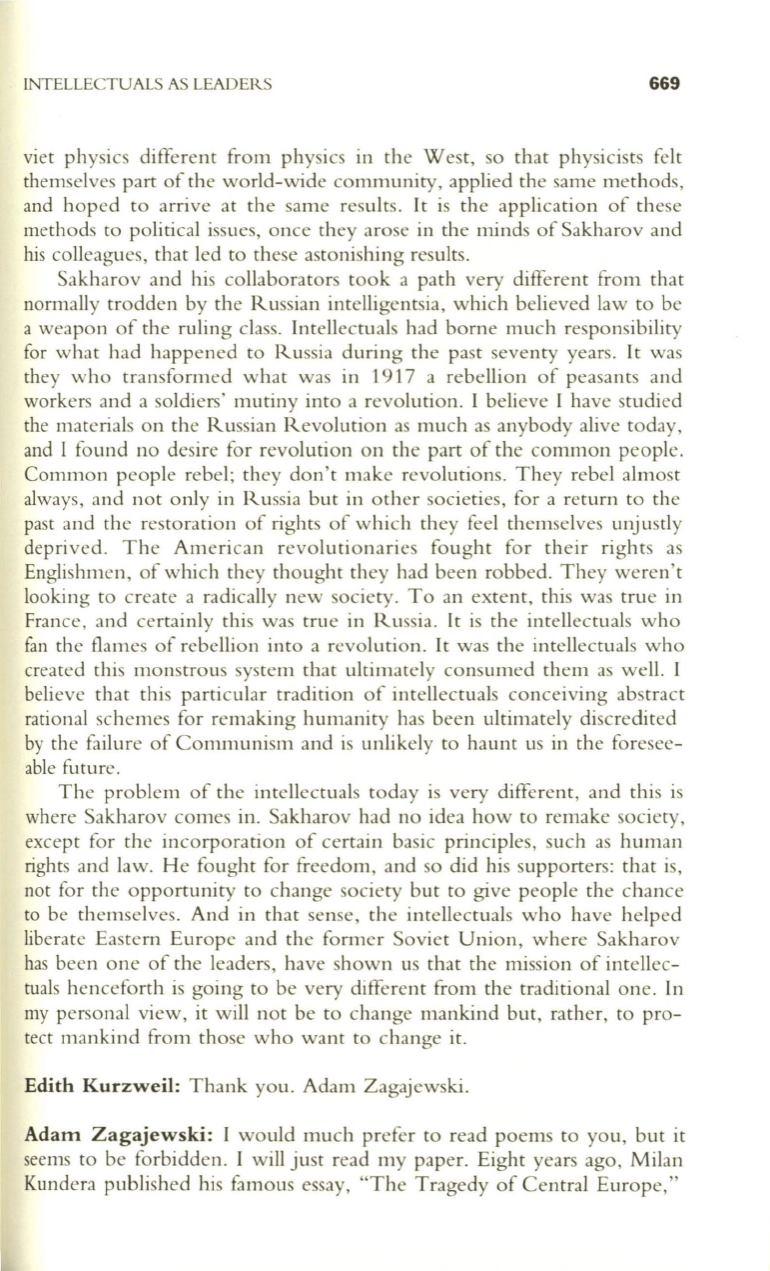
INTELLECTUALS AS LEADERS
669
viet physics different from physics in the West, so that physicists felt
themselves part of the world-wide community, applied the same methods,
and hoped to arrive at the same results. It is the appli cation of these
methods to political issues, once they arose in the minds of Sakharov and
his colleagues, that led to these aston ish in g results.
Sakharov and his collaborators took a path very different from that
normally trodden by the Russian intelligentsia, which believed law to be
a weapon of the ruling class. Intellectuals had borne much responsibility
for what had happened to Russia during the past seventy years. It was
they who transformed what was in 1917 a rebellion of peasants and
workers and a soldi ers' mutiny into a revolution . I believe I have studied
the materials on the Russian Revolution as much as anybody alive today,
and I found no desire for revolution on the part of the common people.
Common people rebel; they don't make revolutions. They rebel almost
always, and not only in Russia but in o th er societies, for a return to the
past and the restoration of rights of which they feel themselves unjustly
deprived. The American revolutionaries fought for their rights as
Englishmen, of which they thought they had been robbed. They weren't
looking to create a radically new society. To an extent, this was true in
France, and certainly this was true in Russia. It is the intellectuals who
fan the flames of rebellion into a revolution. It was the intellectuals who
created this monstrous system that ultimately consumed them as well. I
believe that this particular tradition of intellectuals conceiving abstract
rational schemes for remaking humanity has been ultimately discredited
by the fai lure of Communism and is unlikely to haunt us in the foresee–
able future.
The problem of the intellectuals today is very different, and this is
where Sakharov comes in. Sakharov had no idea how to remake society,
except for the incorporation of certain basic principles, such as human
rights and law. He fought for freedom, and so did his supporters: that is,
not for the opportunity to change society but to give people the chance
to be themselves. And in that sense, the intell ectuals who have helped
liberate Eastern Europe and the former Soviet Union, where Sakharov
has been one of the leaders, have shown us that the mission of intellec–
tuals henceforth is going to be very different from the traditional one. In
my personal view, it will not be to change mankind but, rather, to pro–
tect mankind from those who want to change it.
Edith Kurzweil:
Thank you. Adam Zagajewski.
Adam Zagajewski:
I would much prefer to read poems to you, but it
seems to be forbidden. I will just read my paper. Eight years ago , Milan
Kundera published hi s famous essay, "The Tragedy of Central Europe,"


